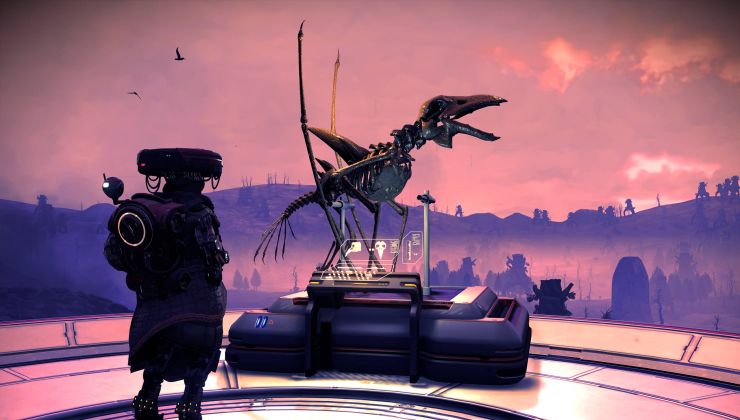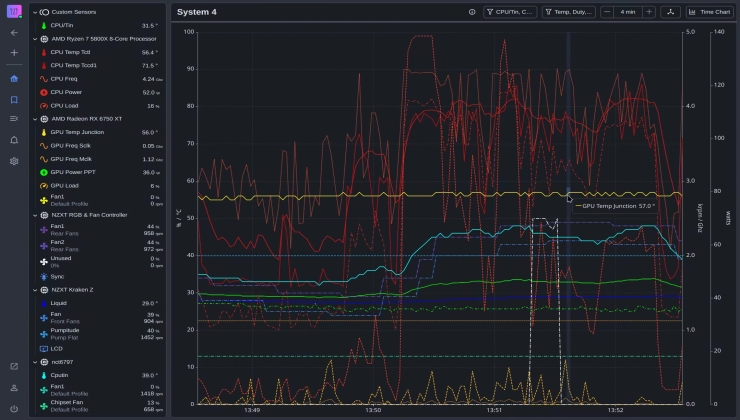As we speculated previously, Valve have now officially announced their new version of 'Steam Play' for Linux gaming using a modified distribution of Wine called Proton, which is available on GitHub.
What does it do? In short: it allows you to play Windows games on Linux, directly through the Steam client as if they were a Linux game.
What many people suspected turned out to be true, DXVK development was actually funded by Valve. They actually employed the DXVK developer since February 2018. On top of that, they also helped to fund: vkd3d (Direct3D 12 implementation based on Vulkan), OpenVR and Steamworks native API bridges, wined3d performance and functionality fixes for Direct3D 9 and Direct3D 11 and more.
The amount of work that has gone into this—it's ridiculous.
Here's what they say it improves:
- Windows games with no Linux version currently available can now be installed and run directly from the Linux Steam client, complete with native Steamworks and OpenVR support.
- DirectX 11 and 12 implementations are now based on Vulkan, resulting in improved game compatibility and reduced performance impact.
- Fullscreen support has been improved: fullscreen games will be seamlessly stretched to the desired display without interfering with the native monitor resolution or requiring the use of a virtual desktop.
- Improved game controller support: games will automatically recognize all controllers supported by Steam. Expect more out-of-the-box controller compatibility than even the original version of the game.
- Performance for multi-threaded games has been greatly improved compared to vanilla Wine.
It currently has a limited set of games that are supported, but even so it's quite an impressive list that they're putting out there. Which includes DOOM, FINAL FANTASY VI, Into The Breach, NieR: Automata, S.T.A.L.K.E.R.: Shadow of Chernobyl, Star Wars: Battlefront 2 and more. They will enable many more titles as progress on it all continues.
To be clear, this is available right now. To get it, you need to be in the Steam Client Beta.
There will be drawbacks, like possible performance issues and games that rely on some DRM might likely never be supported, but even so the amount of possibilities this opens up has literally split my head open with Thor's mighty hammer.
Holy shit. Please excuse the language, but honestly, I'm physically shaking right now I don't quite know how to process this.
Update #1: I spoke to Valve earlier, about how buying Windows games to play with this system counts, they said this:
Hey Liam, the normal algorithm is in effect, so if at the end of the two weeks you have more playtime on Linux, it'll be a Linux sale. Proton counts as Linux.
They will enable many more titles as progress on it all continues.
It is possible to try other games too :
enthusiast users are also able to try playing non-whitelisted games using an override switch in the Steam client
There's also a much welcomed [GRAPHICS DRIVERS QUICKSTART](https://github.com/ValveSoftware/Proton/blob/proton_3.7/PREREQS.md) to help setup vulkan and DXVK on other distros.
Last edited by minidou on 21 Aug 2018 at 10:33 pm UTC
from now on I'm really afraid that too many publishers will use this as an excuse not to provide native linux builds in case it runs "well enough" with proton/wine.
since this is now to be built-in, most people will not have to understand what wine even is, they will take the running binary for granted. hence what is to expect is less performance and continuous direct x instead of opengl or vulkan
this would totally be acceptable for older/legacy titles, but I really think too many will jump on that train that it runs with proton and that there is no need to compile it for linux.
we'll see.
this would totally be acceptable for older/legacy titles, but I really think too many will jump on that train that it runs with proton and that there is no need to compile it for linux.
we'll see.
Definitely a concern. But then "native" builds didn't always get great performance either. I'm most concerned that this encourages devs to simply do DX again and is the death of Vulkan.
Too early to see how it goes. Let's wait for performance and reliability reports first, eh?
Last edited by Liam Dawe on 22 Aug 2018 at 11:45 am UTC
I wasn't prepared for that!
Now I understand why dxvk development was so fast !
Doesn't currently work for me. Purchased Doom like a good reporter to test the feature out, needs you to enable it for all titles and...Steam Client crashes.
That's actually kind of ironic. Since DOOM was pretty much trivial to set up a year ago when they did the free weekend.
Practically this won't really change much for me. My money is still for the devs that actually support Linux.
https://www.reddit.com/r/linux_gaming/comments/997c69/steam_for_linux_valve_introducing_a_new_version/e4licg0/
It currently has a limited set of games that are supported
That's sensible. And honestly, I hope there's going to be some kind of certification process for this long-term, rather than simply declaring open season once it's out of beta. It doesn't matter how much better Proton is compared to vanilla Wine, everything isn't going to work perfectly out of the box. They need to keep control, and convince developers that native is still preferable.
Holy shit. Please excuse the language, but honestly, I'm physically shaking right now I don't quite know how to process this.Completely forgiven. I mean, that was quick from rumour to confirmation. What happened to Valve Time? The speed of DXVK development suddenly makes sense now, though. :)
Edit: Not directly relevant to us, but I see MoltenVK in the GitHub repo, so they must be aiming at unifying gaming across the entire Steam platform. Nice.
Last edited by Dunc on 21 Aug 2018 at 10:31 pm UTC
oh well, I am really not that happy as most people.
from now on I'm really afraid that too many publishers will use this as an excuse not to provide native linux builds in case it runs "well enough" with proton/wine.
since this is now to be built-in, most people will not have to understand what wine even is, they will take the running binary for granted. hence what is to expect is less performance and continuous direct x instead of opengl or vulkan
this would totally be acceptable for older/legacy titles, but I really think too many will jump on that train that it runs with proton and that there is no need to compile it for linux.
we'll see.
Yeah i said the same before and yes big game devs will absolutely jump on this the ones that had fuck all intention of porting to Linux such as Bethesda and ID i think it is very telling that one of the first major q and q answers Valve put out was no if you dont support linux you can continue to not support linux. Despite what others may say on this forum no that is not a good thing
Otherwise it looks like you can download games from the Linux client (in combination with that "enable Steam Play for all titles") now and run them using something else. I'll have a peek at that at some point because even though I didn't specifically buy them, quite a few Windows games have ended up in my library.
Completely with you! Absolutely incredible to see this come true!
It's a good move for Valve. They get to keep up pressure on MS with minimal effort on their part. It will be good for some gamers who get to play games that they might not have gotten to play otherwise. I question if it will be a good long term benefit for Linux. I worry that Feral (and Aspyr) will be harmed by this, which can't be good for our community.
Still, I'm happy for people who feel that they couldn't play some of these games before and can now. I will hold out hope that we continue to make gains in cross platform tools and that this is only a band-aide rather than a crutch.
Last edited by Shmerl on 21 Aug 2018 at 10:41 pm UTC















 How to set, change and reset your SteamOS / Steam Deck desktop sudo password
How to set, change and reset your SteamOS / Steam Deck desktop sudo password How to set up Decky Loader on Steam Deck / SteamOS for easy plugins
How to set up Decky Loader on Steam Deck / SteamOS for easy plugins
See more from me